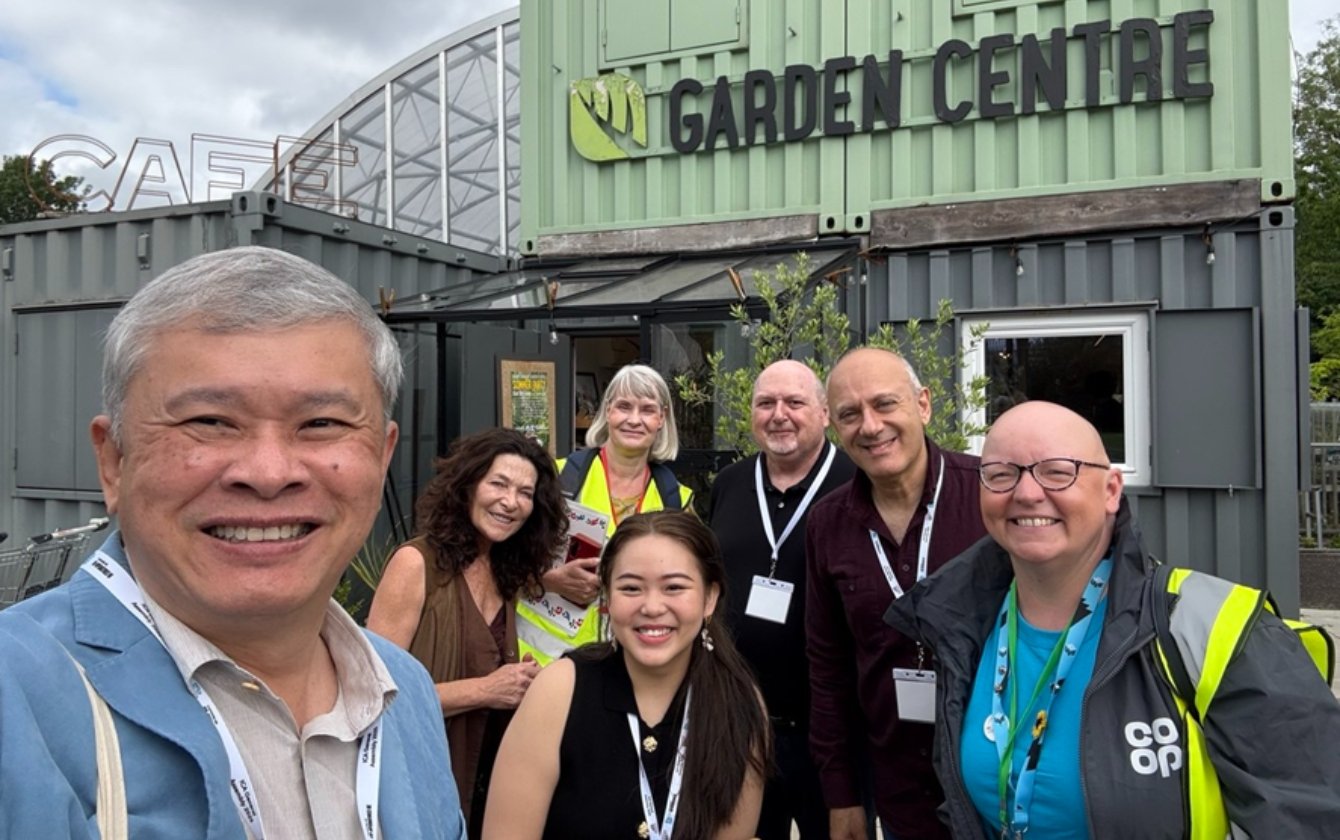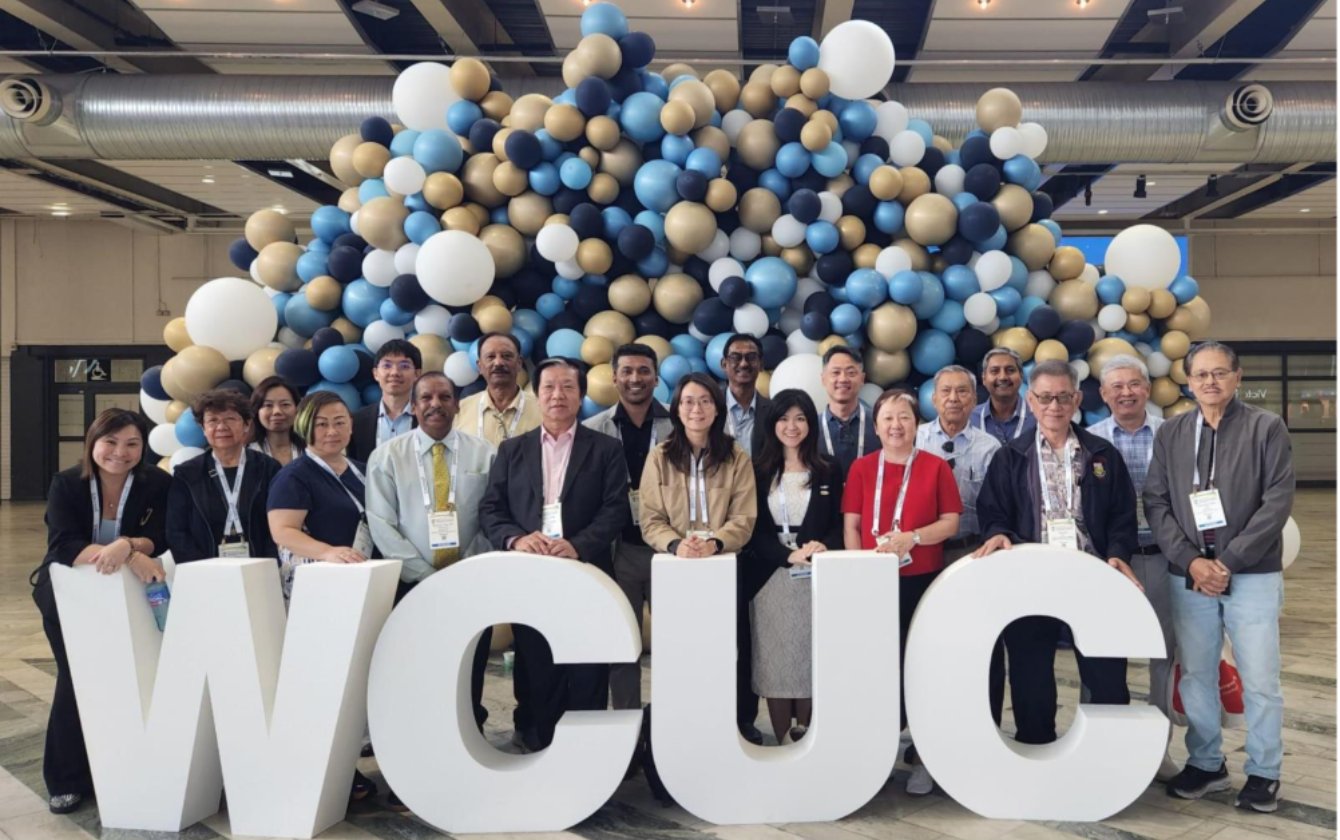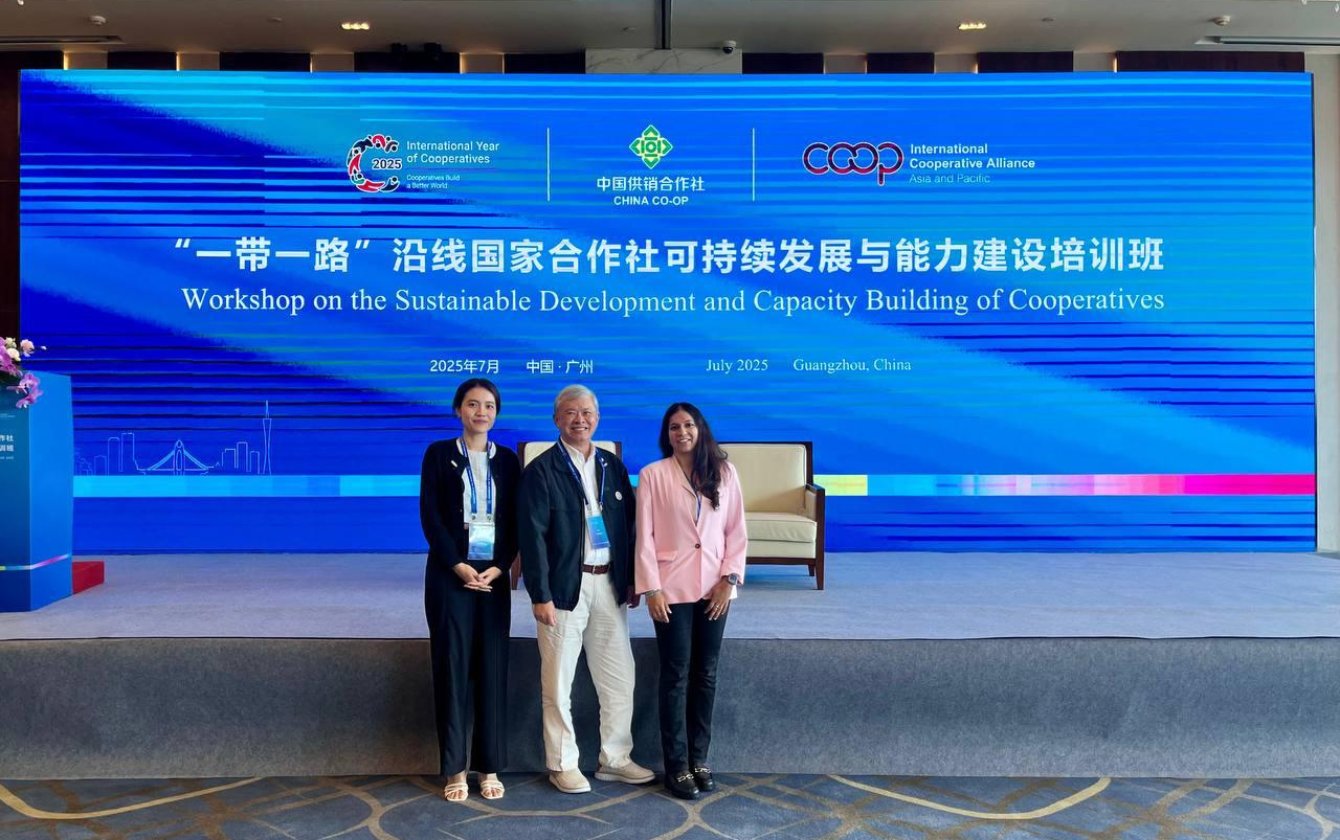

September 2025 Issue: Co-operator Newsletter Quarterly September 2025
What happened at the ICA Global Co-operative Conference & General Assembly 2025

In early July, the Singapore National Co-operative Federation (SNCF) took part in the International Co-operative Alliance (ICA) Global Conference and General Assembly held in Manchester and Rochdale, United Kingdom (UK). Representing Singapore were SNCF’s chief executive officer Ang Hin Kee and youth delegate Kimberly Wong.
The gathering marked a milestone year, aligning with the United Nations’ designation of 2025 as the International Year of Cooperatives. Delegates from around the world convened to shape the movement’s next chapter, underlining themes of identity, inclusivity, and cross-regional collaboration.
Global co-op bodies to embark on Strategic Roadmap too

A central highlight was the adoption of the ICA Strategic Plan 2026–2030: Practice, Promote and Protect. The five-year framework focuses on (1) Expanding inclusive opportunities in co-operatives; (2) Strengthening global co-operative networks; (3) Building awareness and membership growth; (4) Enabling supportive regulation and policy recognition; and (5) Advancing competitiveness of co-operatives.
SNCF and UK Co-op College to collab soon
SNCF also held a dedicated dialogue with the UK Co-operative College, led by its CEO Ms Jacqui Thomasen and Principal Ms Ali Longden. Building on earlier exchanges in New Delhi, India explored collaboration in leadership training and experiential learning. During the dialogue, both parties exchanged insights on leadership renewal and the evolving landscape of co-operatives in Singapore and the UK.

Themes related to succession planning and nurturing co-operative leaders at different career stages were also raised in subsequent discussions. Some ideas that may rejuvenate the the co-operative movement at large include creating more programmes where youth can participate, opening up mid-career pathways that emphasise purpose beyond profit, and executing refresher initiatives for experienced co-operators. Regardless, both SNCF and the college recognise the importance of experiential learning, such as study tours and sector exchanges, to deepen understanding of co-operative identity across generations.
In this vein, SNCF will be dispatching an inaugural batch of Singaporean co-operators to the UK Co-operative College for a short study exchange in 2026. This comes after SNCF has just announced plans to kickstart a programme for Singporean co-operative leaders.
Learning journeys to different co-ops
SNCF also had the opportunities to visit local co-operatives.

For instance, at the visit to the Manchester-based Hulme Community Garden Centre (HCGC), delegates witnessed how a grassroots organisation can integrate social, environmental and educational goals in an urban setting. HCGC, which opens daily, hosts a variety of community programmes such as parent & toddler gardening sessions, home-education groups, well-being gardening clubs, and volunteer sessions. Balancing financial viability with social purpose, it sustained itself in part via the plant nursery, café, venue hire, and educational workshops.

In another, at the Unicorn Grocery Workers' Co-operative, delegates saw how the sociocratic governance model empowers workers (who are also members). Based in Chorlton in South Manchester, the 50 or so worker-members have direct control over strategy, pay and working conditions in the co-operative supermarket. Typically in a workers co-operative, profits from the sales of goods or provision of service are collectively controlled by workers as they think best; workers could decide whether to share the profits between the workforce, give it away, invest in like-minded ventures, or put it back into the business. The co-operative supermarket sources organic produce ethically, supporting local farmers and growers who are at the bottom of the chains to the best of their capabilities. Recognising transparency and the importance of educating consumers, they also showcase a price table, comparing their produce with other grocers in the region.

Before the trip ended, SNCF also visited the Rochdale Pioneers Museum, which documented where and how the global co-operative movement began.
Final words
The five-day conference delved into issues of community responsibility, youth innovation, and global policy solidarity within the co-operative movement.
One of the key sessions saw the UK Co-operative Group present its model of ethical sourcing, fair labour practices, and school outreach programmes. The latter is an approach that reflects the co-operative principle of “Concern for the Community.”

Running alongside the main conference, the National Youth Summit highlighted young leaders advancing climate resilience and digital innovation through co-operative enterprises, fostering exchanges between emerging changemakers and veteran co-operators.
On the policy front, delegates at the General Assembly voted to support Ecuadorian co-operatives currently undergoing reform pressures, while also endorsing the Philippines’ candidacy for the ICA Board in 2026, signalling continued regional collaboration and solidarity across the global co-operative movement.
The next ICA General Assembly will convene in Panama, Central America in 2026.
By Kimberly Wong, with additional reporting by Sng Ler Jun



